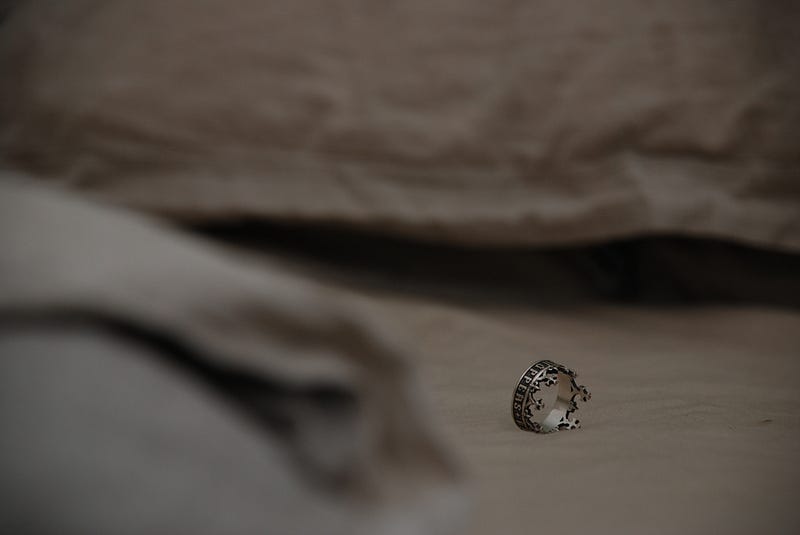Yes. It is Your Fault. Dammit.

The Failure of the rockstar / marco abis (flickr: matley0)
Having as much failure as I have had gives one the opportunity to really explore, study and understand it. It allows for the direct experience of how the startup ecosystem and community treats and reacts to failure.
After all that time, here is what I have learned.
Failure is—100% of the time—your fault.
Market shifted? Bigger company entered your space? Your fault. Ran out of money? Didn’t raise a big enough round? Your fault. Your team didn’t execute, your investors gave you bad advice? Your fault.
Own it. Own your failure as much as you would own your success.
A few days ago, a blog written by an anonymous founder (I hope it’s not a big farce) entitled My Startup Has 30 Days to Live, caught the imagination of the startup community. We love death stories. It means that someone is worst off than us. Yes it’s morbid, but in a world where your entire job as a founder is to make sure that something which is dying lives for just one more day, sometimes the difficulty of others makes your pain just a bit more tolerable.
The basic premise of the founder’s story is that he had a company that was bootstrapped and was going well, but he followed the trail of gumdrops right into an accelerator, and rather than use his guile to save himself from the oven, the evil VC witch ate his company alive.
I started to read it with the expectation of commiseration at the difficulties he faced, but instead this rising voice in the back of my head kept repeating, “when are you going to take full responsibility for the failure? When?”
Failure is always the fault of the founder. But that’s ok.
The truth is that failure is as failure does. It is a thing. It exists. For some, it is devastating, for others its a beginning or an impetus for change. But the act of failing is never the measure of the quality of the founder; its the very next action that matters.
Failure is the condiment that gives success its flavor. — Truman Capote
Fail Purposefully
We talk about the ability to celebrate failure as part of the process of entrepreneurship, but as founders (and investors) we work our asses off to avoid it. How can we ever learn how to properly bounce back from failure if we don’t practice?
For most entrepreneurs, who have been successful for most of their lives at most everything they have put their minds to, this is a foreign concept. Practice failure and bouncing back? How is that possible?
When I was in high school, I was a competitive swimmer. I weighed 180 pounds, had an amazing head of hair and was even a captain of the swim team my senior year.
It’s been a long time since I ever got in the water to train or race. I weigh over 300 pounds, and while my hair is still as amazing, it’s a bit more grey.
For years, I refused to get into the pool. My big belly wasn’t what was stopping me, but rather the fact that I would be a complete and total failure at the one thing I loved and succeeded at for a long time.
If there was no chance of winning, why should I play?
Three months ago, I decided to try swimming again. I was beginning to get healthy in earnest, and swimming was something I loved. Once.
I decided that I was going to accept that I was going to fail before I began. That failure was certain.
I decided to fail purposefully.
Swimming would become an exercise not in trying to succeed, but in bouncing back from failure. From putting myself in an unwinnable situation and finding the small components within that I could feel good about.
Suddenly, it was no longer about the failure. It was about the small successes: my hand traveling just so through the water; my breathing hitting just the right cadence; my kick making the right sound…for just a second.
Amazingly, something changed in me. I stopped beating myself up for “letting myself go.” I took responsibility for the years of damage I visited on my body. I failed purposefully.
I learned that I could not only handle failure, but I could also successfully bounce back. I realized that *I* wasn’t the failure, that the activity was a failure, and that what made me happiest was the bounce back.
In fact, I’ve learned that my tolerance for failure increases the closer I am to success. Because I know that I can bounce back.
Now I seek out things to fail at purposefully. I am doing yoga. Ever want to laugh? Watch a 300 lb guy do Standing Bow. but each time my hand inches closer to the ground, I succeed.
Failure is a horrible thing to experience. It makes us not only wonder about the “fairness” of the world, but question our fundamental beliefs about ourselves. And that is ok. We fail. Entrepreneurs fail often, and it’s our fault.
But it’s not the failure that matters. It’s what you do next.
